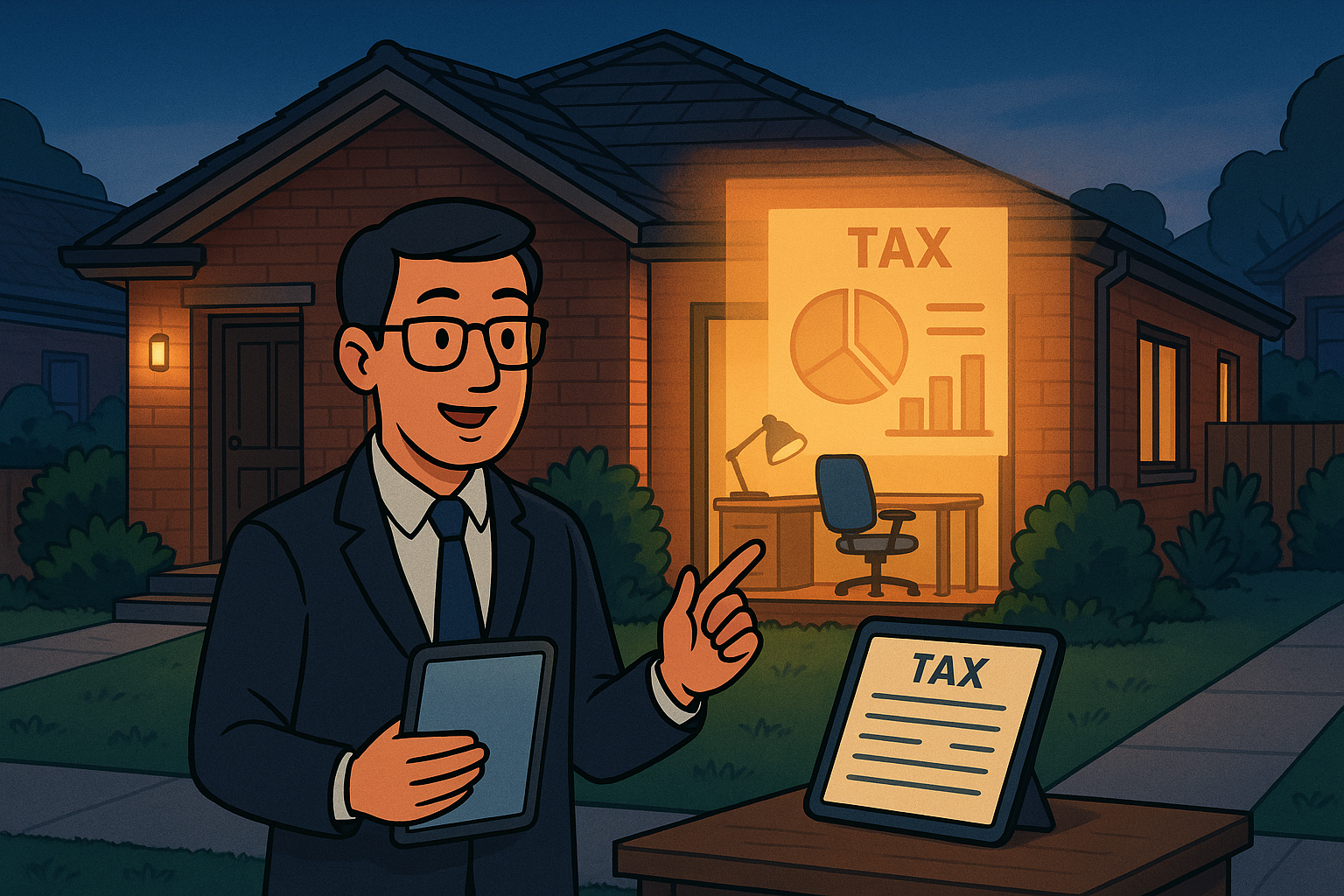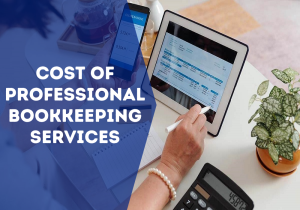For many Australians, working from home has become more common. It is flexible, saves travel time, and can be great for work-life balance. But, if you run a home business from your property, you might not be aware about land tax. It’s a bit tricky, but don’t worry, SEED PLUS Accounting is here to explain it in simple terms about Home Business and Land Tax in Victoria.
What is Land Tax?
First, let’s talk about land tax Victoria. It’s a yearly tax you pay on land you own in Victoria. But wait, it’s not on all land. Your main home, what we call your principal place of residence (PPR), is usually exempt from land tax. This is good news for most homeowners. Land tax applies to things like:
- Investment properties
- Holiday homes
- Commercial properties
- Vacant land
The tax is worked out based on the total site value of all your taxable land as at 31 December each year. If the total value of your non-exempt land is more than the threshold ($50,000 for individuals, $25,000 for trusts), you’ll get a land tax bill. The State Revenue Office (SRO) sends these out, usually between January and June.
You can learn more about how land tax is calculated on the SRO website. They also have a handy land tax calculator to help you estimate.
Working from Home: Does it Change My Land Tax?
This is where it gets a bit more complex for home-based businesses. If you run a substantial business from your home, a part of your property might become subject to land tax, even if it’s your PPR (Principle Place of Residence). The SRO has been looking into this more, so it’s important to understand.
Here’s the main point: your PPR is generally exempt. But if you use a part of your home exclusively for a business activity, that part might lose its exemption. This means that portion of your property could be assessed for land tax.
For example, if you’ve turned a separate room, a garage, or even a granny flat into a dedicated office or workshop for your business, and you don’t use it for private living, it might be seen as a “place of business”. In such cases, the SRO might apportion your land to say, “this bit is for living, that bit is for business.” The part used for business could then be taxable. The SRO looks at factors like:
- Is the area clearly for business?
- Is it used only for business, or almost only for business?
- Do clients or customers come to this area regularly?
- Is it necessary for your work to have this dedicated space at home?
If your home business activities are more like a “side hustle” or just a small part of your home (like using a desk in your living room for occasional work), it’s less likely to impact your land tax. It’s when a substantial business activity happens in a dedicated business area that the land tax exemption for that part of your PPR might be affected.
Occupancy Expenses vs. Running Expenses: Important Distinction!
When talking about tax deductions for working from home, it’s crucial to understand the difference between “running expenses” and “occupancy expenses”. The Australian Taxation Office (ATO) makes this very clear.
Running expenses are the extra costs you have because you’re working from home. These include:
- Electricity and gas for heating, cooling, and lighting your work area.
- Internet and phone costs.
- Stationery and printer ink.
- Cleaning costs for your dedicated work area.
You can usually claim these if you’re working from home, even if you don’t have a separate “place of business”. The ATO offers a “fixed rate method” (currently 70 cents per hour worked from home) which covers many of these, or you can use the “actual cost method” if you have good records.
Occupancy expenses are the costs related to owning or renting your home. These are the big ones:
- Mortgage interest or rent.
- Council rates.
- Land tax.
- House insurance.
As an employee working from home, you generally cannot claim occupancy expenses. Why? Because if you do claim them, it can affect your Capital Gains Tax (CGT) exemption when you sell your home. Your main residence is usually CGT exempt, but if you claim a part of it as a “place of business”, that exemption might be reduced.
However, if you operate a genuine home-based business as a sole trader or partnership, and you have an area of your home that has the character of a ‘place of business’, you might be able to claim occupancy expenses. But be very careful here! This means the area is clearly identifiable as a business place, not used for private purposes, and often used for client visits.
If you claim occupancy expenses, it means that part of your home is no longer solely your PPR for tax purposes. This can then trigger land tax implications for that portion, as it’s no longer fully exempt. It’s a complex area, and it’s essential to get professional tax advice before claiming occupancy expenses.
Keep Good Records and Seek Advice
The most important thing for anyone running a small business from home in Rowville, or anywhere in Victoria, is to keep excellent records. This applies to all your business expenses, including anything related to your home office.
If you are unsure about your land tax obligations or how your home office expenses might affect your tax, it’s always best to speak to a qualified professional. We at SEED PLUS Accounting understand Victorian tax laws and can help you navigate these rules. Don’t guess, get help!
You can also check the official government websites for the most accurate and up-to-date information:
-
State Revenue Office (SRO) Victoria: This is where you’ll find all the details about land tax in Victoria. You can look at their guides and resources.
- SRO Victoria Land Tax: https://www.sro.vic.gov.au/land-tax
- SRO Victoria Land Tax Exemptions: https://www.sro.vic.gov.au/land-tax/land-tax-exemptions
-
Australian Taxation Office (ATO): For information on working from home deductions and capital gains tax.
- ATO Working from Home Expenses: https://www.ato.gov.au/individuals-and-families/income-deductions-offsets-and-records/deductions-you-can-claim/working-from-home-expenses
- ATO Home-based Business Expenses: https://www.ato.gov.au/tax-and-super-professionals/for-tax-professionals/prepare-and-lodge/tax-time/tax-time-toolkits/tax-time-toolkit-small-business/small-business-guides/home-based-business-expenses
Think About Your Business Structure
How your business is set up can also affect your tax. Are you a sole trader, a partnership, a company, or a trust? Each structure has different rules for claiming expenses and managing land tax implications. For example, if your business is run through a company or trust, and it pays rent to you for using part of your home, there might be different tax considerations, including Fringe Benefits Tax (FBT).
It’s always a good idea to discuss your business structure with an accountant to make sure you’re operating in the most tax-efficient way and meeting all your obligations. We at SEED PLUS can assist with this. For other business needs, you may find helpful information on sister sites like the Business.gov.au website which offers general guidance on starting and running a business in Australia.
Conclusion: Don’t Let Land Tax Catch You Out!
Running a home business is fantastic, but it’s important to understand the potential land tax implications. While your principal home is generally exempt, using a significant part of it exclusively for business could change things. Keep good records, understand the difference between running and occupancy expenses, and most importantly, get professional accounting services and advice from experts like SEED PLUS in Rowville, Melbourne. We’re here to help you understand your tax obligations and keep your business thriving.
Disclaimer: This blog post provides general information only and is not intended as specific tax advice. Tax laws can be complicated and change often. You should always seek professional advice from a qualified accountant or tax agent regarding your own specific circumstances. SEED PLUS Accounting in Rowville, Melbourne, is available to provide tailored advice. This information is based on Australian tax laws and specifically Victorian land tax laws as understood at the time of writing (July 2025). We only use government resources for this information, but always refer to the latest publications from the State Revenue Office Victoria and the Australian Taxation Office.
Contact our office: (03) 6153 0180 to discuss your scenario.








